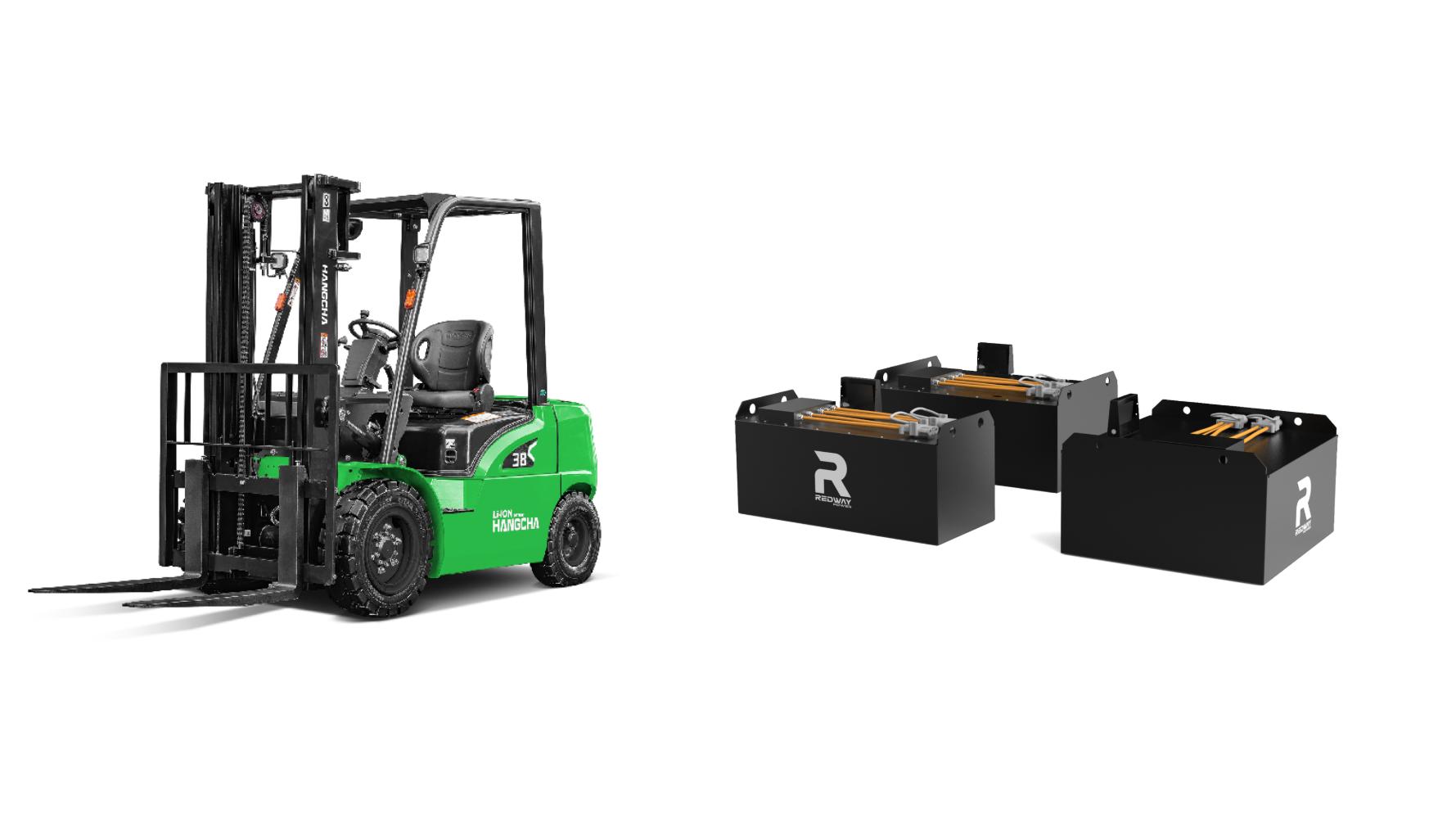Lithium-ion forklift batteries are transforming material handling with higher energy density, faster charging, and longer lifespans than traditional lead-acid batteries. They require minimal maintenance, operate efficiently in varied temperatures, and reduce downtime through opportunity charging. These batteries also lower total ownership costs by 30% over their lifespan, making them ideal for high-demand warehouses and cold storage facilities.
48V 400Ah Lithium Forklift Battery
How Do Lithium-Ion Forklift Batteries Compare to Lead-Acid Alternatives?
Lithium-ion batteries charge 3x faster than lead-acid, operate at 95% efficiency versus 80%, and last 2-3x longer. Unlike lead-acid, they don’t require watering, equalizing charges, or acid disposal. A 200Ah lithium battery provides 2,500+ cycles versus 1,200 for lead-acid, with consistent voltage output until depletion. For example, a lithium-powered forklift can work 2-3 shifts on a single charge versus 1 shift for lead-acid.
48V 300Ah Lithium Forklift Battery
The operational advantages become particularly evident in multi-shift operations. Where lead-acid batteries require 8-hour cooling periods between charges, lithium units support opportunity charging during breaks – a 15-minute plug-in can add 35% capacity. This eliminates battery changeouts, saving 30-45 minutes daily in labor costs. Thermal management is another key differentiator: lithium batteries maintain stable performance from -20°C to 60°C, while lead-acid efficiency plummets 40% below freezing.
| Metric | Lithium-Ion | Lead-Acid |
|---|---|---|
| Cycle Life | 2,500+ | 1,200 |
| Charge Time | 1-2 hours | 8-10 hours |
| Energy Density | 150-200 Wh/kg | 30-50 Wh/kg |
What Is the True Cost of Ownership for Lithium Forklift Batteries?
While lithium batteries cost 2-3x more upfront ($15k-$25k vs. $5k-$10k for lead-acid), they save $45k-$60k over 10 years through reduced energy costs (30% less), zero maintenance, and longer lifespan. Cold storage operations save an extra $12k annually due to 20% better performance in sub-zero temperatures. Most users achieve ROI within 2-3 years through productivity gains.
48V 280Ah Lithium Forklift Battery
Detailed cost analysis reveals hidden savings across four key areas: energy consumption (lithium uses 140kWh/month vs 200kWh for lead-acid), labor (eliminating watering/cleaning saves $3,500/year), replacement costs (3 lead-acid replacements = 1 lithium purchase), and downtime reduction ($180/hour saved through continuous operation). When factoring in resale value – lithium batteries retain 40% value after 5 years vs 10% for lead-acid – the financial advantage becomes undeniable.
| Cost Factor | 5-Year Savings |
|---|---|
| Energy Efficiency | $18,000 |
| Maintenance | $17,500 |
| Productivity Gains | $32,000 |
Can Lithium Batteries Withstand Demanding Warehouse Environments?
Lithium-ion batteries perform optimally in -4°F to 140°F (-20°C to 60°C) and maintain 98% capacity in freezing conditions versus 50% for lead-acid. Their sealed design resists vibration, moisture, and dust ingress (IP54+ rating). Advanced battery management systems (BMS) prevent thermal runaway, with UL-recognized models sustaining 10,000+ hours in multi-shift operations without performance decay.
48V 700Ah Lithium Forklift Battery
What Safety Features Do Lithium Forklift Batteries Include?
Lithium forklift batteries feature multi-layer protection: cell-level fuses, temperature sensors (±1°C accuracy), and gas venting systems. The BMS monitors voltage imbalance (<±50mV), state-of-charge (SOC) accuracy (±3%), and isolation resistance (>500Ω/V). UL 2580 certification requires surviving a 10m drop test and 15 minutes of direct flame exposure without explosion – standards 3x stricter than lead-acid requirements.
72V 300Ah Lithium Forklift Battery
How Do Lithium Batteries Integrate With Smart Warehousing Systems?
Modern lithium batteries include CANbus connectivity for real-time monitoring through warehouse management systems (WMS). Features like predictive charging (adjusting rates based on shift schedules) reduce energy costs by 18%. Fleet managers track individual battery health via cloud dashboards, receiving alerts for anomalies like cell voltage deviations >5% from average – enabling proactive maintenance 2-3 weeks before failures occur.
36V 250Ah Lithium Forklift Battery
What Environmental Benefits Do Lithium Forklift Batteries Offer?
Lithium batteries reduce CO2 emissions by 40% versus lead-acid through higher efficiency and 98% recyclability. A 24V/600Ah lithium battery contains 18kg of lithium carbonate vs. 200kg of lead, eliminating 85% of hazardous waste. Smart charging cuts energy use by 1.2MWh annually per battery – equivalent to powering 100 homes for a day. Recycling programs recover 95% of materials for reuse in new batteries.
24V 230Ah Lithium Forklift Battery
“Lithium-ion technology has redefined power density thresholds in material handling. Our latest 80V systems deliver 480kW peak power – equivalent to 650 horsepower – enabling single-battery solutions for 10-tonne capacity forklifts. With active cell balancing extending cycle life beyond 6,000 charges, operators can now achieve 15+ years of service in three-shift operations.” – Dr. Ellen Zhou, Chief Engineer, Redway Power Systems
FAQs
- How long does a lithium forklift battery last on one charge?
- Lithium forklift batteries provide 8-10 hours runtime, supporting 2-3 shifts with opportunity charging. A 700Ah battery regains 80% charge in 45 minutes using 150A fast charging.
- Can lithium batteries replace all lead-acid forklift batteries?
- Yes – lithium batteries are compatible with 95% of electric forklifts. Retrofitting requires a compatible charger and voltage adapter (24V-80V range). Always consult OEM specifications for amp-hour capacity matching.
- Are lithium forklift batteries dangerous in wet environments?
- No – IP67-rated lithium batteries withstand temporary submersion (1m depth for 30 minutes) and high-pressure washes. The BMS automatically disconnects circuits if moisture is detected in terminal areas.
Know more:
Why Are Lithium-Ion Forklift Batteries Revolutionizing Material Handling?
What Are the Best Energy Storage Solutions for Material Handling?
What Are Industrial Battery Management Systems (BMS) and Why Are They Critical
What Are the Optimal Forklift Battery Charging Solutions for Industrial Efficiency?
Which Battery Is Better: Lithium or Lead-Acid?
How Can Warehouses Transition to Sustainable Power Solutions?



